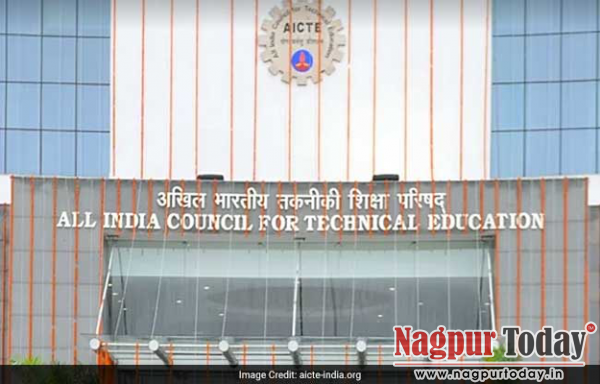Nagpur: The Dept. of Chemical Engineering, Priyadarshini Institute of Engineering & Technology, Nagpur, has received a grant of Rs.19,37,255/- under the research promotion scheme (RPS) of All India Council for Technical Education (AICTE), New Delhi, for establishing and carrying out research activities in the in the field of Carbon Capture.
The Project Title: “Study of Carbon Dioxide capture in Amine Nanoparticles Hybrid Nanofluid”
This research is already initiated at Dept. of Chemical Engineering, Priyadarshini Institute of Engineering & Technology, Nagpur, under the supervision of Dr. Rohit S. Khedkar (Jain) as the Principal Investigator of the Project. The research scholars associated to this project are Saurabh Mahatme.
The grant is released to conduct research in Carbon dioxide reduction from atmosphere with help of Nanotechnology for three years. Fund will create research ambience in the institutes by promoting research in engineering sciences and innovations in established and newer technologies having practical importance in the sphere of social development and knowledge development.
The outcome of the research work was expected to utilization of new nanomaterial called Nanofluid for Economical and efficient capturing of carbon dioxide from atmosphere. The project coordinator promise for efficient technology demonstration too.
Dr. Rohit S. Khedkar (Jain) Assistant Professor, Department of Chemical Engineering of the college, is the principal investigator and the grant had been sanctioned to him.
SUMMARY:
Our planet has entered a period in which climate is changing more rapidly than ever experienced in recorded human history, primarily caused by the rapid build-up of carbon dioxide (CO2) in the atmosphere from the burning of fossil fuels. Scientists have identified a number of risks from changing climate, including rising sea level, drought, heat waves, more severe storms, and increasing precipitation intensity and associated disruption of terrestrial and aquatic ecosystems.
Additionally, elevated atmospheric CO2 is diffusing into the ocean, measurably acidifying surface waters and affecting marine ecosystems. Natural processes currently remove over half of our emission from the atmosphere each year. Once emissions cease, it will take thousands of years before those processes eventually return Earth to something like pre-industrial levels of atmospheric CO2.
The two main options for responding to the risks of climate change involve mitigation—reducing and eventually eliminating human-caused emissions of CO2 and other greenhouse gases and adaptation reducing the vulnerability of human and natural systems to changes in climate. A third potentially viable option, currently under development but not yet widely deployed, is carbon dioxide removal (CDR) from the atmosphere accompanied by reliable sequestration. A fourth, more speculative family of approaches called albedo modification seeks to offset climate warming by greenhouse gases by increasing the amount of sunlight reflected back to space.















